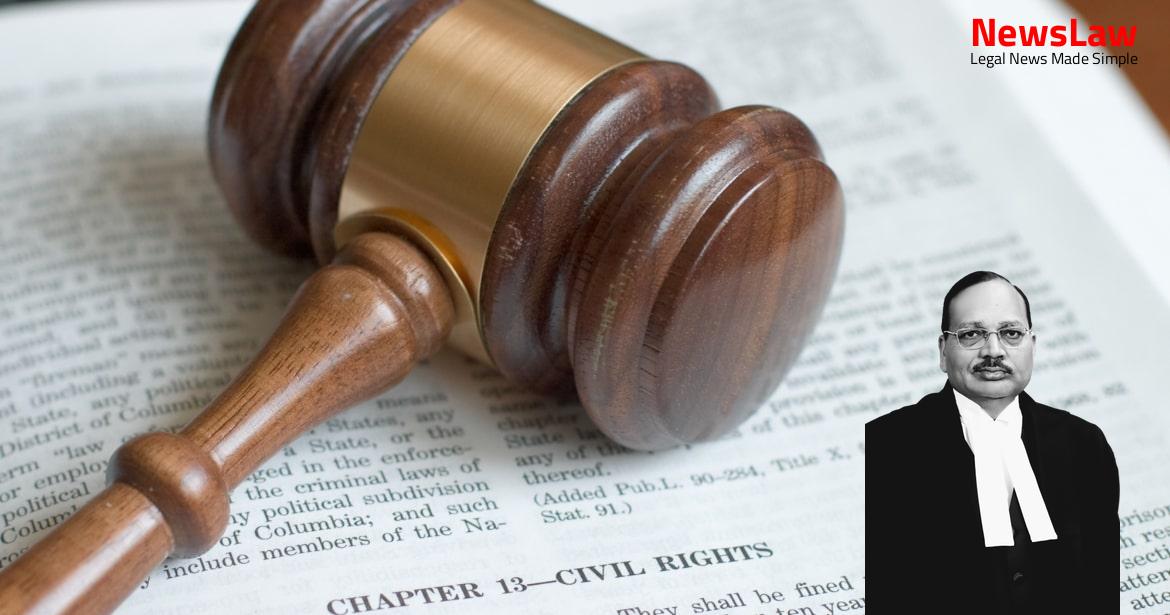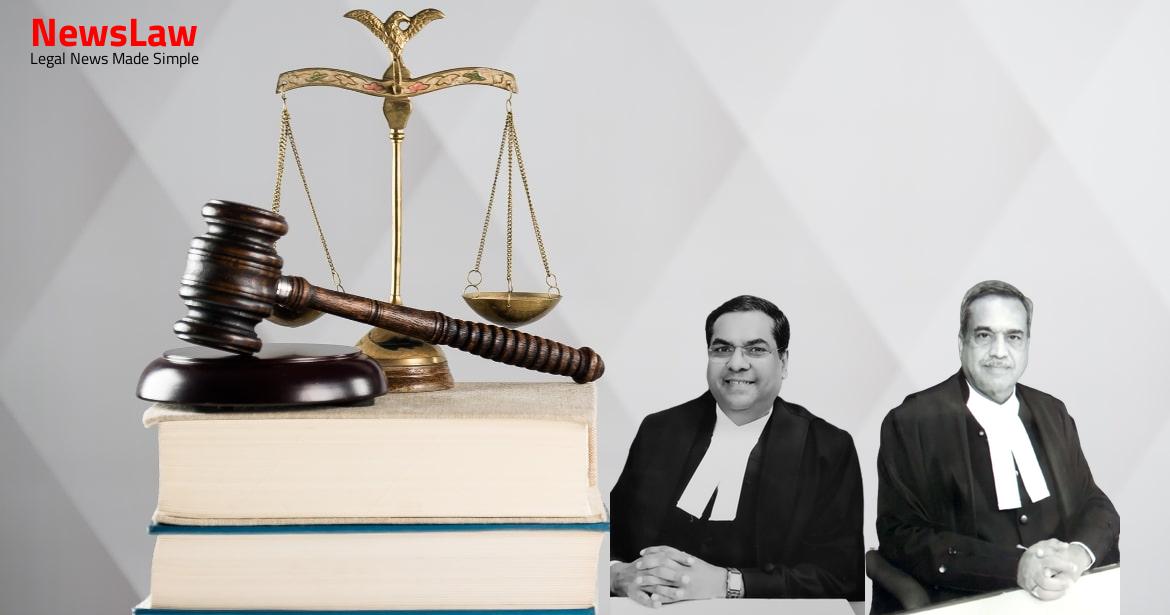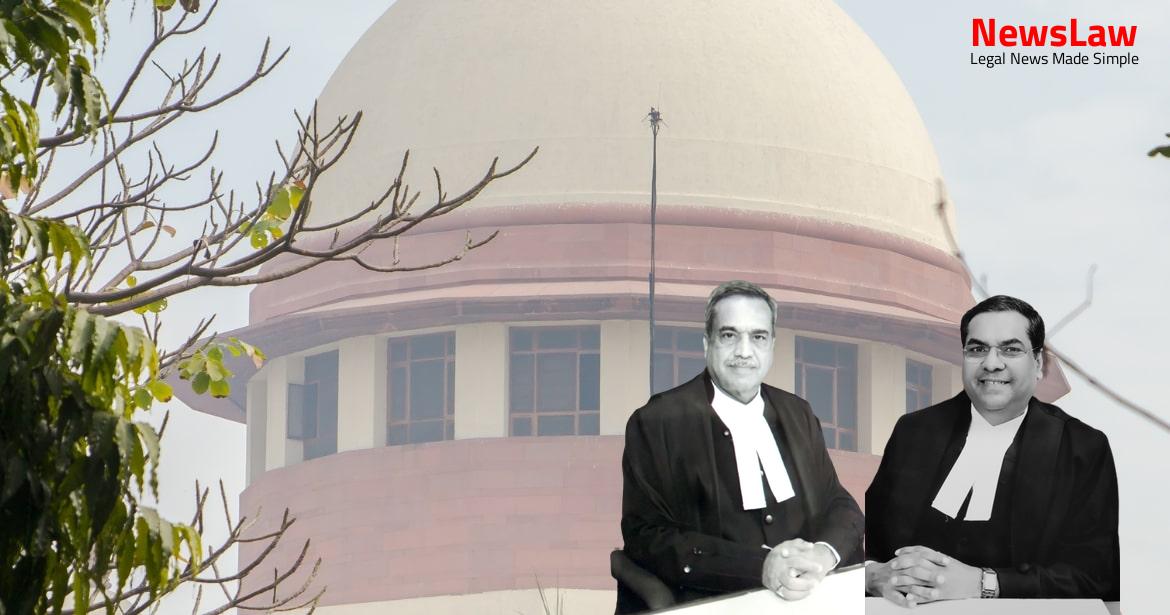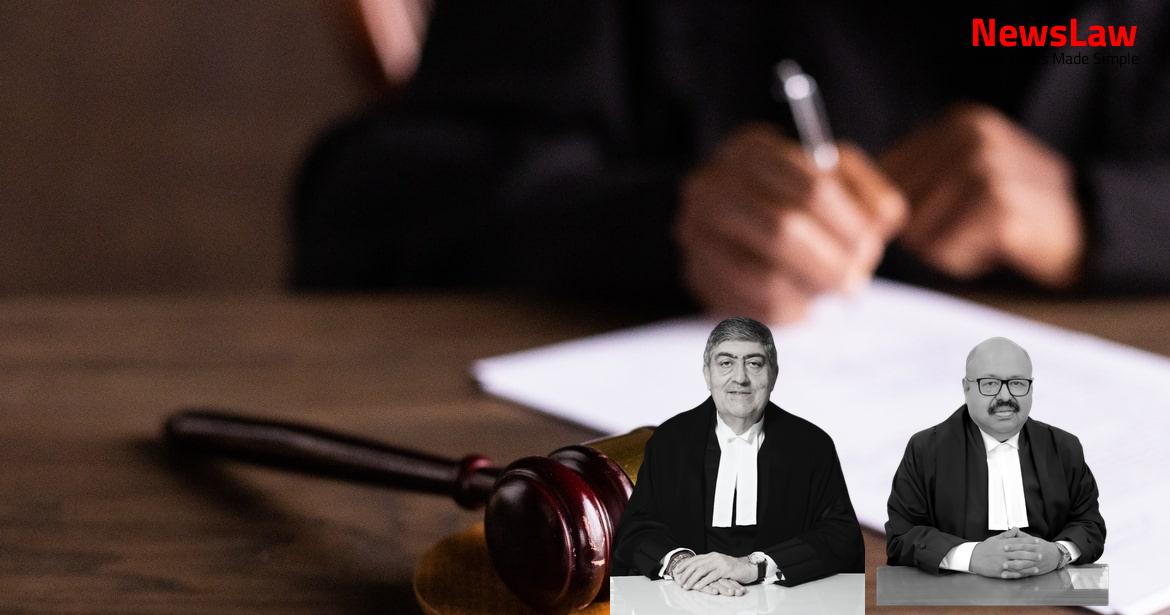Delve into the complexities of a recent Supreme Court judgment regarding the condonation of delay in land acquisition proceedings. The case involves discussions on the significance of showing ‘sufficient cause’ for delay, considerations of public interest, and the impact of COVID-19 on legal proceedings. It also touches upon the challenges of maintaining finality in legal cases while balancing public and private interests.
Facts
- The GNCTD initiated land acquisition under the Land Acquisition Act, 1894 for Delhi’s development.
- The landowners challenged acquisition proceedings claiming non-payment of compensation or non-possession.
- Multiple appeal petitions and review petitions were filed regarding lapsed acquisition proceedings.
- Challenges were made against High Court orders declaring acquisition lapses under Section 24(2) of the 2013 Act.
- Various state entities like DDA, DSIIDC, and DMRC were beneficiaries of the land acquisition.
- Factual matrix detailed in another judgment related to GNCTD vs. KL Rathi Steels Ltd. was also discussed briefly.
- The appellants filed appeals against High Court orders that relied on previous judgments to declare acquisition proceedings as lapsed.
- The judgments Pune Municipal Corporation and Sree Balaji Nagar Residential Association were overruled and the order dated 23.03.2020 was restored by the Court.
- Directions were issued on 23.09.2021 to exclude the period between 15.03.2020 and 02.10.2021 from limitation.
- Two different benches of the Court referred the matter to a larger bench in 2018.
- The term ‘paid’ in Section 24(2) of the 2013 Act was interpreted to mean ‘tender’ of payment.
- Acquisition proceedings would be deemed to have lapsed if possession was not taken despite payment.
- The High Court decisions declaring acquisition as lapsed were allowed based on Pune Municipal Corporation and Sree Balaji Nagar judgments.
- The Constitution Bench held that periods of stay should be excluded in favor of landowners.
- Payment of compensation was clarified to mean tendering of payment and deposit.
- The judgment in Pune Municipal Corporation was recalled after Manoharlal judgment in 2020.
- The matter was deferred pending a final decision on referring to a larger Bench and High Courts were directed not to interpret Section 24 of the 2013 Act.
- Land acquisition proceedings cannot be deemed lapsed if compensation was tendered and later deposited.
- The term ‘deposit’ in Section 24(2) of the 2013 Act was clarified to include deposit with the Government Treasury.
- The judgment in Pune Municipal Corporation was considered per incuriam for not considering statutory rules and appropriate precedents.
Also Read: Speedy Trial Rights Upheld: Bail Granted in X vs. State of India
Arguments
- Appellants filed appeals, review petitions, and miscellaneous applications post the Shailendra case seeking favorable determination of rights.
- Argument made that suppressed material facts by respondent-landowners would have estopped them from seeking declaration of lapsed acquisition proceedings.
- Concealment of being subsequent purchasers after lands were notified for acquisition also argued.
- Reliance placed on legal provisions and precedents to support contentions.
- Allegations of fraud on the court and public exchequer due to concealments.
- Seeking Court’s indulgence on grounds of public interest and larger cause of justice.
- Citing Limitation Act and relevant court decisions to support delay in discovery of fraud or mistake.
- Contrasting argument by respondents citing cases where delay condonation based solely on public interest was rejected.
- Concern raised about potential unfairness to third-party rights if settled position is reversed due to prolonged delay.
- The respondent-landowners challenged the appellants’ argument of suppression of facts by refuting the omnibus allegation made against all of them.
- They emphasized that the delay in filing the appeals and applications cannot be condoned solely on the grounds of public interest or vague claims of equity.
- The respondent-landowners specifically pointed out that there was no suppression of material facts during the proceedings in the High Court as alleged by the appellants.
- Their stance was that the delay should not be excused without a clear demonstration of sufficient cause for the delay in filing the appeals.
- They stressed on the importance of evaluating each case individually based on merit rather than relying on general assertions of equity for condonation of delay.
Also Read: Rizvi Committee Pay Scale Judgment: Upholding Justice and Equity
Analysis
- Where compensation has not been deposited for majority of land holdings, all beneficiaries are entitled to compensation under the new Act.
- If physical possession has not been taken or compensation not paid after five years of award, land acquisition proceedings are deemed to have lapsed.
- The appropriate Government may choose to initiate fresh land acquisition proceedings in such cases.
- Condonation of delay in filing a petition for special leave must not be done without notice to the respondent.
- The Court should not condone the delay ex-parte in such cases.
- The cases of Pune Municipal Corporation and Sree Balaji Nagar Residential Association were overruled by the decision in the case of Indore Development Authority v. Manoharlal.
- The overruling of these cases did not reopen the disputes between the parties but only removed their precedential value.
- The subsequent change in law due to the overruling of a judgement will not affect cases that have already been decided unless they are pending for final adjudication.
- Government entities are no longer automatically granted leeway for condonation of delay based on factors unique to their functioning.
- A case cannot be reopened and re-decided solely based on a new interpretation of the law unless it is pending before a court awaiting final adjudication.
- The Supreme Court emphasized the importance of showing ‘sufficient cause’ within the prescribed period for condonation of delay.
- The High Court’s discretion in condoning delay should not be interfered with unless there is clear bureaucratic indifference causing the delay.
- The analysis in the judgment focuses on the condonation of delay in the appeals related to the acquisition of lands under the 1894 Act.
- The Limitation Act is discussed in relation to the grounds for seeking condonation of delay, emphasizing the need for a ‘sufficient cause’.
- The appellants’ arguments for condonation of delay are examined, including subsequent changes in the law, public interest, and the impact of the COVID-19 pandemic.
- Judicial discretion in condoning delay is highlighted, with a case-by-case examination and consideration of the circumstances.
- The potential consequences of not condoning the delay are discussed, including the impact on public infrastructure projects and the lack of finality in the legal proceedings.
- The need for a fact-finding exercise in cases of alleged suppression of material facts is emphasized, along with the importance of balancing public and private interests.
- The judgement also touches upon the possibility of re-opening cases due to subsequent changes in the law, highlighting the challenges of maintaining finality in legal proceedings.
- The summary concludes with a focus on the need for a nuanced approach in the analysis of each ground for condonation of delay, considering the specific circumstances of each case.
- The Central Bureau of Investigation failed to follow its own manual in the case of State of Jharkhand v. Lalu Prasad Yadav.
- The CBI filed SLPs with delay in the case.
- The delay in filing the SLPs should be condoned considering the facts of the case.
- Condoning the delay would serve the cause of justice in the specific circumstances of the case.
- The court exercises powers under Article 142 of the Constitution to do complete justice in the unique circumstances of the cases.
- Cases where notice was issued only on delay and not on merits are disposed of using Article 142 powers.
- Cases where judgments have been set aside in previous rounds of litigation are considered infructuous.
- Adherence to the one-year timeline for completing the acquisition process is emphasized for the appellants and GNCTD.
- Compliance with specific sections of the 2013 Act can be dispensed with for lands predominantly urban/semi-urban.
- Parties are granted liberty to approach the High Court for factual disputes or further clarification.
- Appellants cannot seek protection under ‘Manoharlal (supra)’.
- It is observed that requiring full compliance for a fresh acquisition under the 2013 Act may not serve public interest given the unique circumstances.
- Dispensation of ‘Rehabilitation and Resettlement Award’ compliance is deemed appropriate.
- Expropriated land-owners can seek reference for enhancement of compensation in accordance with Chapter-VIII of the 2013 Act.
Also Read: High-Powered Sale Committee Formation for Asset Auction in Sai Group of Companies Case
Decision
- The High Court is directed to dispose of the cases on merits after deciding the question of suppression of facts.
- Writ petitions are revived and restored on the file of the High Court.
- Cases to be de-tagged and listed separately on 22.07.2024 for further proceedings.
- Directions issued for determination of compensation, market value assessment, and time limit for fresh acquisition proceedings.
- Extension of time limit for initiation of fresh acquisition proceedings under the 2013 Act.
- Maintenance of status quo regarding possession and land use changes until fresh acquisition proceedings are completed.
- Dispensation of compliance with certain provisions under the 2013 Act in special circumstances.
- Exclusion of period for computing limitation under various Acts due to the COVID-19 pandemic.
- Collector to conduct a hearing of objections without Social Impact Assessment Report and publish a public notice.
- Dismissal of Review Petitions and Miscellaneous Applications using Article 142 with directions for re-initiating acquisition under the 2013 Act.
- Notice to be issued on merits in cases where leave has been granted in previous SLPs.
Case Title: DELHI DEVELOPMENT AUTHORITY Vs. TEJPAL (2024 INSC 456)
Case Number: C.A. No.-006798-006798 – 2024



